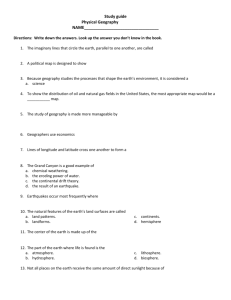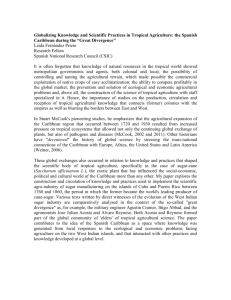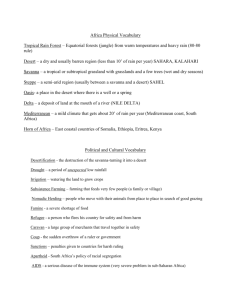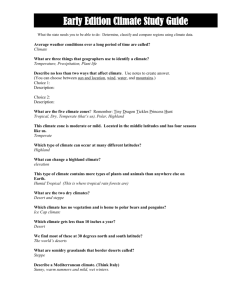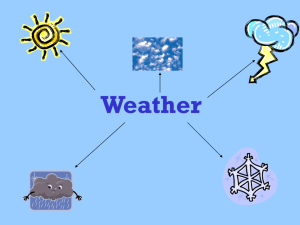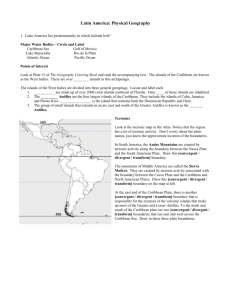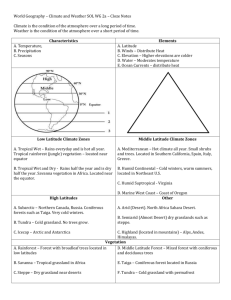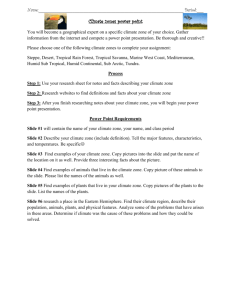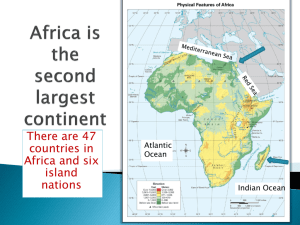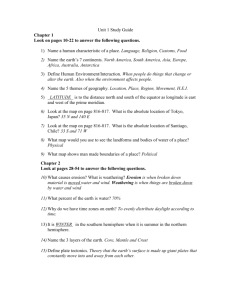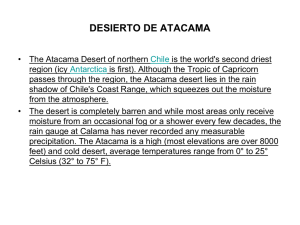climate of latin america
advertisement
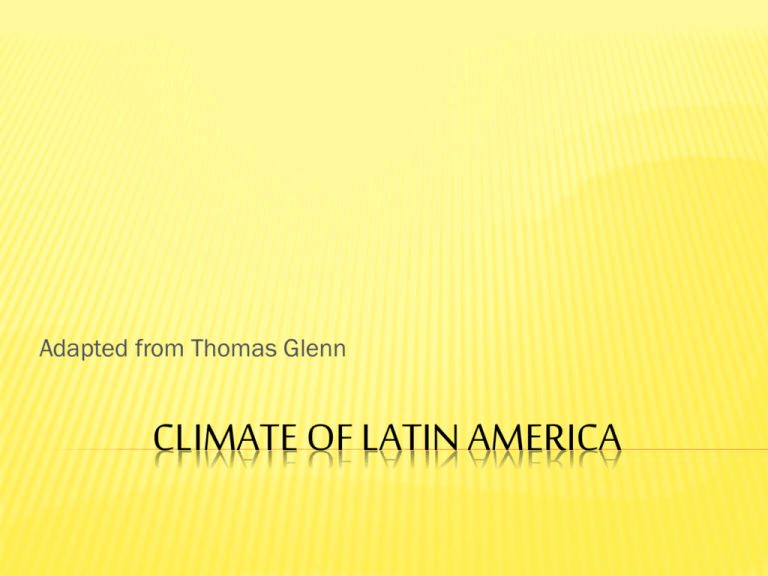
Adapted from Thomas Glenn CLIMATE OF LATIN AMERICA THE TROPICS Much of Latin America is located in the Tropics Tropic of Cancer Tropic of Capricorn This area receives direct rays of the sun for much of the year CLIMATE ZONES Climate Zone Location Tropical Rainforest Some Caribbean Islands and much of Central and South America Tropical Grasslands Parts of Central America, most Caribbean Islands, and north central South America Steppe Northern Mexico, coastal Peru and Chile, northeastern Brazil, and southeastern Argentina Desert Pacific coast of Northern Chile (Atacama Desert) Mediterranean Central Chile Humid Subtropical Southeastern Brazil to the Pampas in Argentina and Uruguay Marine West Coast Southern Chile and Southern Argentina CLIMATE OF LATIN AMERICA Andes: Amazon River Basin: Below sub-zero temperatures why are the Andes Mountains cold? Tropical heat (80°F) Receives over 80 inches of rain per year Atacama Desert One of the driest places on Earth what physical feature creates the desert? THE ATACAMA DESERT CLIMATE IN THE CARIBBEAN Climate is usually sunny and warm Hurricane Season: June to November The Caribbean CLIMATE FACTORS Elevation is the height of land above sea level The higher the elevation= the colder the temperature Location to the equator: countries that are located on or near the Equator are warmer. The farther you move away from the Equator the more the temperatures drop ALTITUDE CLIMATE ZONES ALTITUDE CLIMATE ZONES Altitude Zone Temperature Crops Grown Tierra Helada 20°F - 55°F Little to no vegetation Tierra Fria 55°F - 65°F Barley, wheat, potatoes, apples Tierra Templada 65°F - 75°F Coffee, corn, citrus Tierra Caliente 75°F - 80°F Bananas, rice, sugarcane, cacao WHAT IS THE RING OF FIRE? The ring of fire is located around the Pacific Ocean 75% of the world’s active volcanoes located here 90 % of earthquakes happen here The Ring of Fire is a direct result and consequence of plate tectonics and the movement and collisions of crustal plates THE RING OF FIRE TSUNAMIS Tsunami take place when a huge earthquake occurs causing the plates below the water to push up causing the water to create a huge wave. The waves can reach 90 feet or higher. HURRICANES Storm system characterized by a low pressure system center and thunderstorms that produce strong wind and flooding rain. Feeds off the heat released when moist air rises and the water vapor it contains condenses. HURRICANES Form almost exclusively in tropical regions. Referred to as: typhoon, tropical storm, cyclonic storm, and tropical depression. HURRICANE DISASTERS HURRICANE DISASTERS
